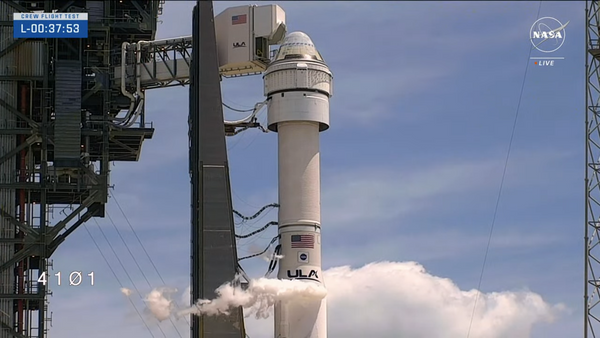In the late 1980s, Bill George was a successful executive at Honeywell International. He was on the shortlist to be the next CEO. But he was miserable.
George disliked the focus on turnarounds. Squeezing out expected quarterly numbers wore on him, too. "I really wanted to be working closely with customers and employees, but had prioritized impressing my bosses and Wall Street," George said.
He turned down offers to join medical device maker Medtronic three times. But the company did not give up. He accepted the fourth one to become president and chief operating officer in 1989. And he took over as CEO in 1991. As CEO, he grew the company's market value from $1 billion to $60 billion over the next decade.
"It was the best decision of my professional life," he said of finally joining Medtronic. "I was excited to go to work with a group of talented people who were dedicated to the mission of alleviating pain, restoring health and extending life."
George: Grow Your Leadership Skills in the Face of Adversity
George says it's important to learn lessons throughout your life.
He grew up in Grand Rapids, Mich., but saw opportunities elsewhere. George's parents supported any career he wanted to pursue. He earned a B.S. in industrial and systems engineering from the Georgia Institute of Technology in 1964. And then he earned an MBA with high distinction from Harvard Business School two years later.
George's working career started when he served as an assistant to the Undersecretary of Defense/Comptroller. But private enterprise called.
In 1969, Litton Microwave Cooking Products, a division of Litton Industries, hired George at age 27 as president and chief operating officer. He quickly got a jolt. As he was packing his bags to move to Minneapolis, over the radio he heard a warning. The U.S. Food and Drug Administration declared microwave ovens "might be hazardous to your health."
Talk about a crisis. "I was not an expert in any aspect of the business, but in this crisis everyone looked to me for survival," he wrote in "Authentic Leadership: Rediscovering the Secrets to Creating Lasting Value." "My skill was to pull together the right people and empower them to solve the problems, one at a time."
Build On Your Skills
George got off to a rough start. But Litton became the leader in consumer microwave ovens with a one-third market share as he guided it until 1978. Northrop Grumman bought the company in 2001. "I made a lot of mistakes at Litton, but you don't learn just by studying others' experiences or textbooks," he told Stanford's "Leadership Insights."
Honeywell came calling. There, he rose to president of Honeywell Europe. And then he rose to executive vice president. But unhappiness set in. He often traveled, neglected his home life and acted in ways that made him uncomfortable. Hitting corporate goals became his life.
George knew it was past time he became the type of leader he believed he should be.
Be An Authentic Leader Like the Former Medtronic CEO
George learned as much as he could about other leaders to build his own style.
"I have often been asked what the most important characteristic was for leaders at Medtronic," George said. "After years of studying great leaders and their traits, I concluded it was authenticity. That means being consistently true to your values, self-disciplined and highly independent, otherwise you will be whipsawed by competing interests as you seek the approval of others."
George recommends that all leaders should become more self-aware. You can do this by taking a psychological inventory using tools like the Myers-Briggs personality test, StrengthsFinder or the Enneagram of Personality.
Self-discovery might be uncomfortable. You find out your strengths are overemphasized. George says he struggled with his desire to get things done quickly. And that trait made him impatient. He was overeager to challenge others' viewpoints. And that means sometimes he lacked tact.
Modify Your Style Like George
George adjusted his style to improve. He learned to listen better, developed more emotional intelligence to understand colleagues, and asked for candid feedback from mentors and co-workers. Additionally, he started practicing meditation and mindfulness breathing exercises for many years to stay calm.
"Many leaders have found value in psychotherapy, 12-step programs and spiritual paths, though they are often uncomfortable about acknowledging this in public," George said.
One of his many bestselling books on leadership is "True North Groups: A Powerful Path to Personal and Leadership Development," written with Doug Baker, which discusses the value of support groups of friends and close colleagues who meet regularly to discuss the deep issues they face in their lives and careers.
Become A Leader for the Future
George, now 80, followed his leadership of Medtronic by becoming a professor at Harvard Business School in 2004. He is currently an executive fellow. And he wrote a series of bestselling books on how wise leaders manage their organizations.
The latest is "True North: Emerging Leader Edition," co-authored with Zach Clayton (CEO of Three Ships), which relates the stories of those from four generations who have been role models for achieving impressive long-term results by empowering their employees.
"There have been and still are great leaders of the boomer generation, of course," he said. "But the 1970s through the early 2000s were about command-and-control from the top and striving to move up the hierarchy. Gen X (born 1965-1980), millennials (1981-1996) and Gen Z (1997-2012) expect different things from companies they work for, including transparency, diversity and work-life balance."
Modify Leadership For Modern Employees
Leaders who don't adapt will lose top employees. "The Great Resignation and remote work ... have forced many leaders to recognize that they have to adapt to this new world or employees will leave," he said.
Business schools are not preparing students to become true leaders, George says. Students are learning to be just managers who can do technical tasks. They find out how to focus on financial reports that cater to short-term shareholders. That's not the same as long-term stakeholder capitalists, according to George.
"They are not training leaders who know how to bring out the best in people," George said. "And they do not understand the importance of helping employees develop emotional intelligence, so it's a toxic environment. One result is that customers are dissatisfied with their products and services and switch their allegiance to competitors who have a more enlightened approach."
Be Prepared For Crises
George has faced many career and personal crises. And he drew on the experience of leaders who successfully navigated their own challenges to provide tips for such events. He created a blueprint to deal with tough times.
First, face reality. Start with yourself. Ask yourself how you contributed. And welcome candid feedback from your key executives, mentors, workers on the front line, and some truth-tellers who are outside your circle.
Next, dig deep for root causes. Apply short-term remedies that, no matter how painful, are right for the long-term health of the company. And then make reforms that will help prevent unexpected disasters from happening again. At the same time, you must make plans that will offset crises when they occur. It might require shutting down normal business for retraining.
Always be truthful and transparent with the media, regulators, vendors, employees, customers and the general public. Lastly, use the crisis to transform your business, perhaps creating new product lines, switching suppliers or replacing executives.
"Courageous leaders don't worry about looking good, they just want to rally their people to get through it," George wrote. "They are willing to face all obstacles and lead people to a better place."
Bill George's Keys
- Former CEO and chairman of Medtronic, now an executive fellow at Harvard Business School and author of bestselling books on leadership.
- Overcame: The influence to conform to the standard corporate focus on short-term results.
- Lesson: "The most difficult transition for emerging leaders is recognizing that leadership is not about them; it is about serving others and bringing out their best."







